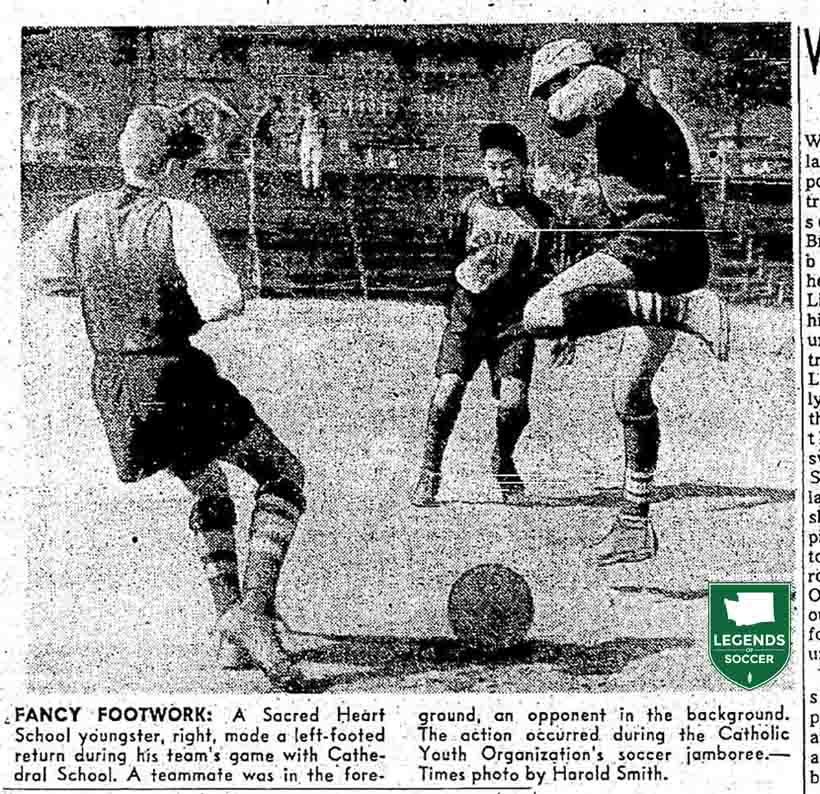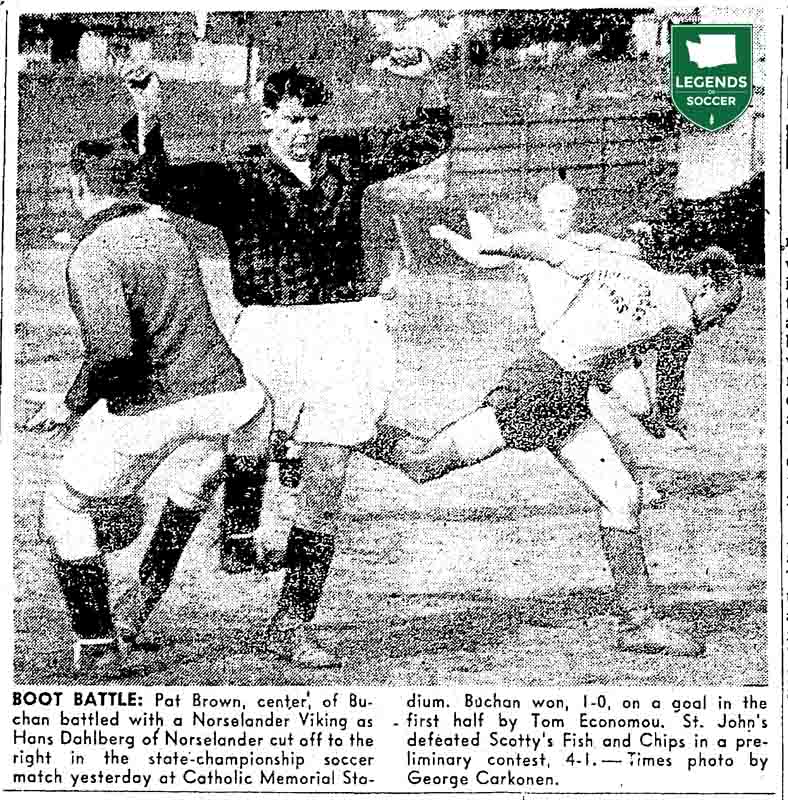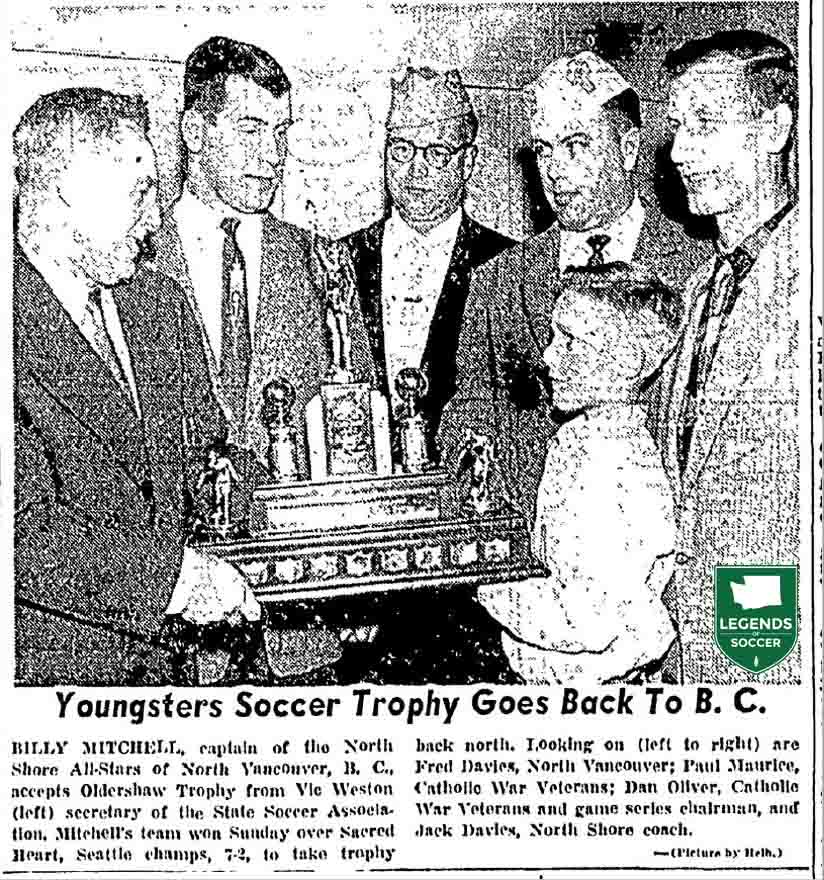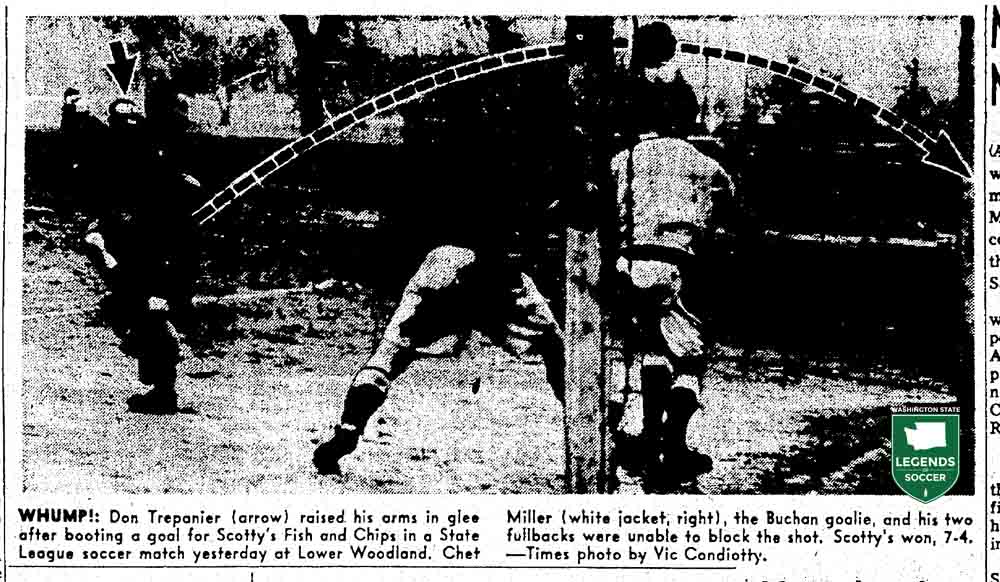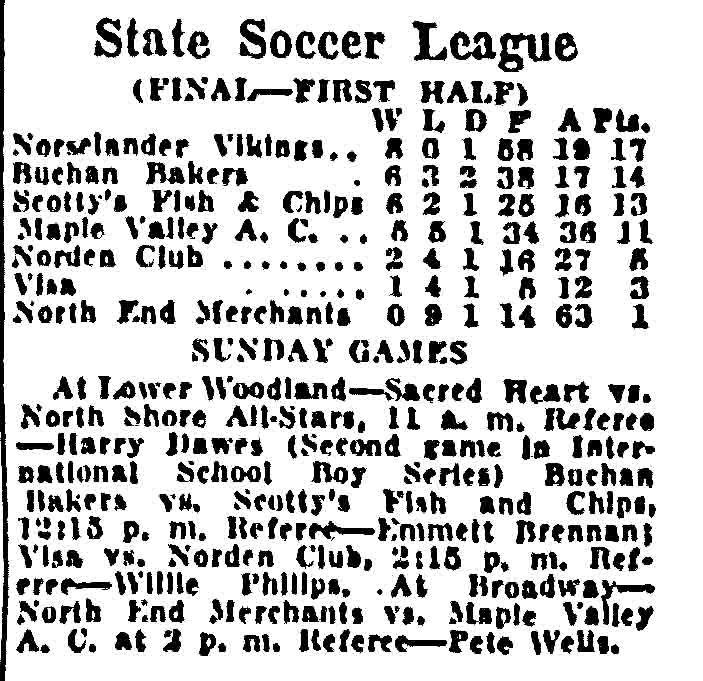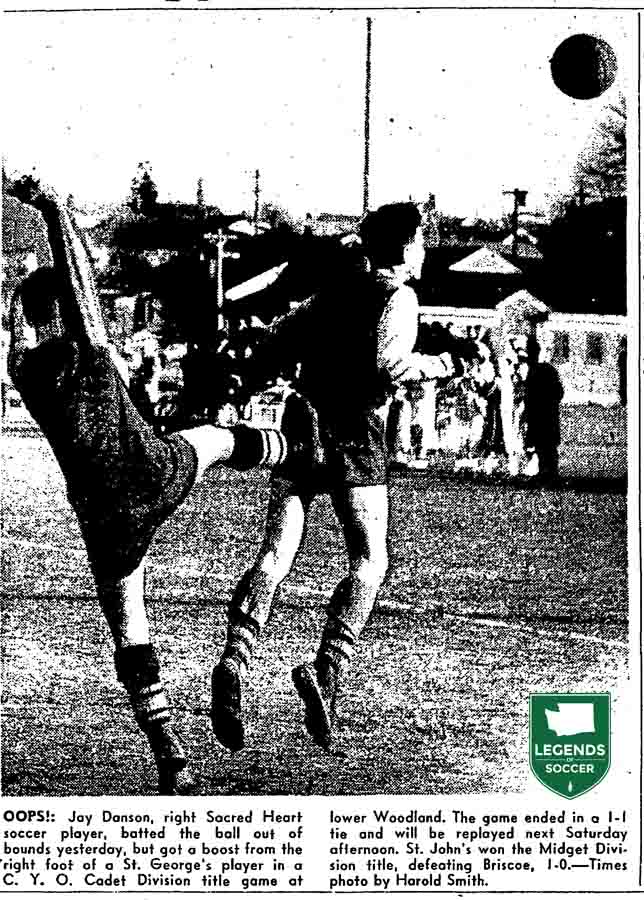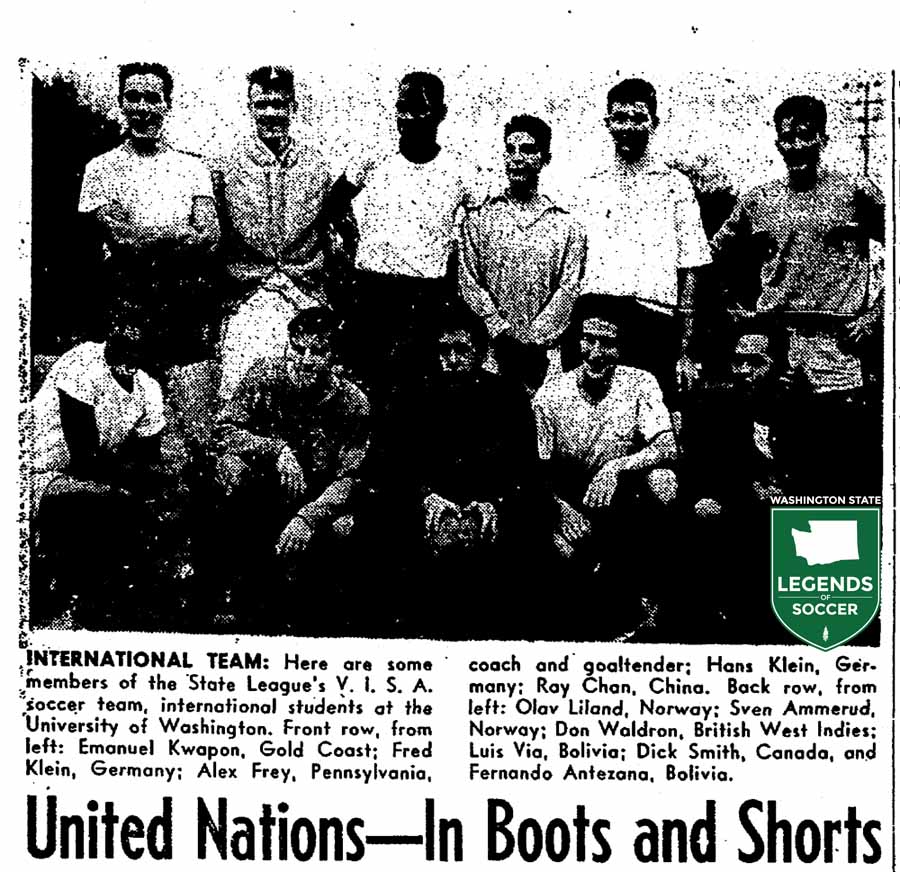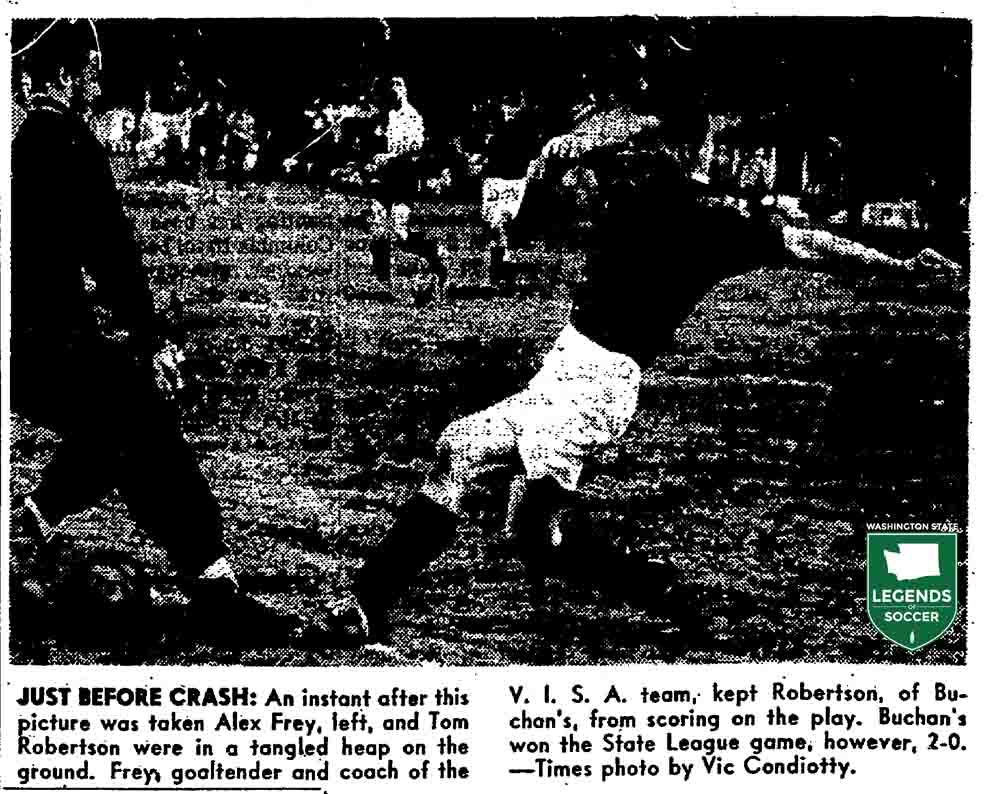1956 – Around the World and Close to Home
Soviet troops crush an anti-Communist uprising in Hungary. Althea Gibson becomes the first Black American to win a Grand Slam tennis title at the French Championships. The Yankees' Don Larsen pitches the first perfect game in World Series history. Housing discrimination in the Madrona/Denny Blaine neighborhoods of Seattle eases when some residents begin to quietly sell to Black or Asian families. Albert Rosellini is elected to his first term as Washington governor. Seattle’s Pete Rademacher wins the heavyweight boxing gold medal at the Melbourne Olympic Games.
The Pride of Black Diamond
When Vic Weston was inducted into the National Soccer Hall of Fame, it effectively cemented Black Diamond and the miners, machinists, aerospace assemblers, shipyard welders and other everyday laborers of his day into the foundation of our state’s footballing history. For if one asked Weston about his upbringing, it is rooted in Black Diamond and the company coal towns of east King County and their devotion to the game.
“It was in 1910,” Weston began telling reporter Vince O’Keefe of The Seattle Times in 1971, “an Englishman named Jack Evans sent to Seattle for some balls and got us started. In the next few years Black Diamond became the soccer capital of the Northwest. When we weren’t winning the championship, the lads down at Carbonado were.”
Weston was Black Diamond, through and through. His parents arrived there among the early wave of Welsh and Italian immigrant miners, in 1889. Vic (Victor Albert), the ninth of 11 children, was born in 1897. Footballing, whether playing with balled-up rags or cans, was very much in the Black Diamonders’ blood well before the proper equipment arrived from the city. By 1911, their first season in the Northwest League, they were champions.
Weston, at age 16, was among the first American-born players to find his way onto the field in that league. His younger brother Rufus soon joined him. During World War I, when Black Diamond fielded a very young side, the league’s power shifted from the mining towns to the Seattle shipyard teams, bolstered by an influx of top players whose day job was constructing naval and merchant vessels.
Weston moved to Seattle for work as a meter reader for Puget Sound Power & Light, but the love of the game was strong.
“I wasn’t supposed to get Sundays off, but my foreman was a kindly soul. He told me I could have the day off if I lined up the cars’ first,” Weston said to O’Keefe. “So, I’d get up at 4 a.m. line up the cars take the old No. 6 streetcar to Yesler and Occidental from there, ride the bus to Carbonado.
“The return bus from Carbonado would be gone before the game ended. Then I had to take a bus to Tacoma switch to the interurban and get off at Georgetown and hike a mile home. Twenty hours for one soccer game–but it was worth it!”
A top player, Weston’s services were always in demand. He later played for a fledgling company team of Boeing Aircraft, and he was a regular in picked teams that faced all-stars from British Columbia. When his playing days ended, Weston began officiating and coaching. He was a long-serving secretary to the state association and was elected mayor of Black Diamond.
Everyone around the game, even those on the East Coast, grew to know of Vic Weston. With that canvas of abundant good works, it came as no surprise when, in 1956, he was the first Northwest-born man inducted to the United States Soccer Hall of Fame.
 1955
1955

